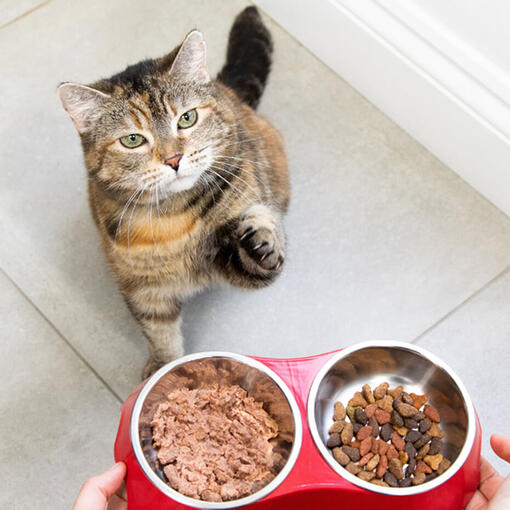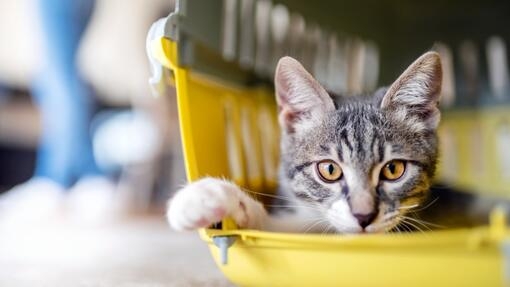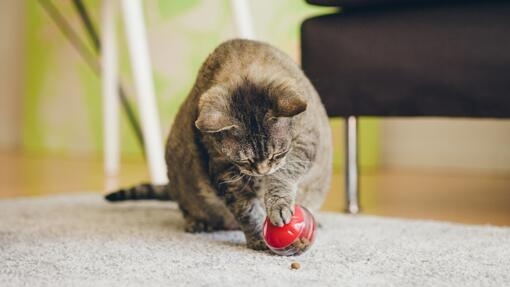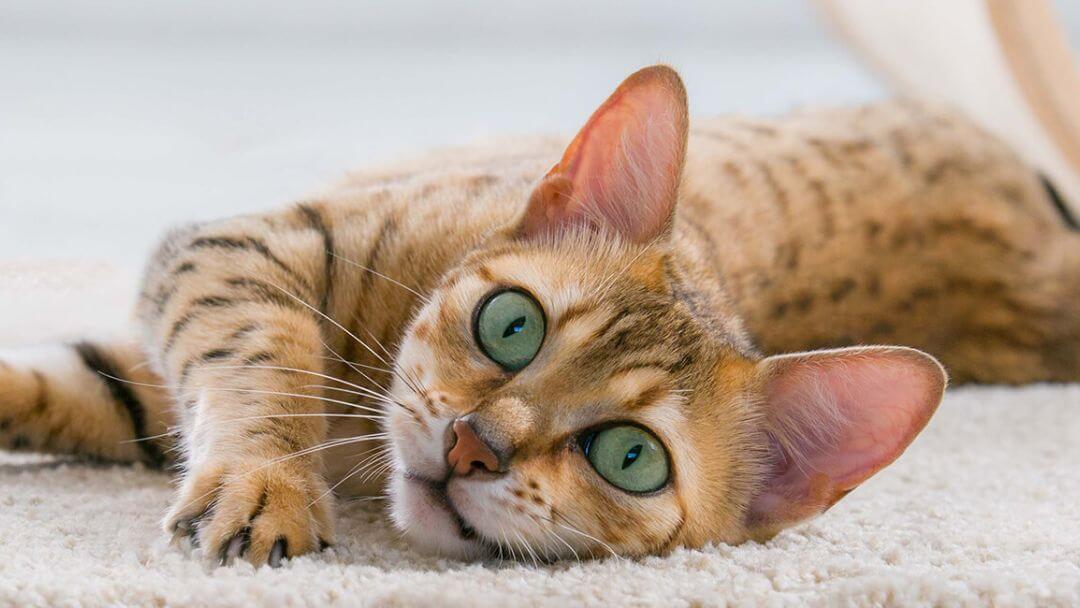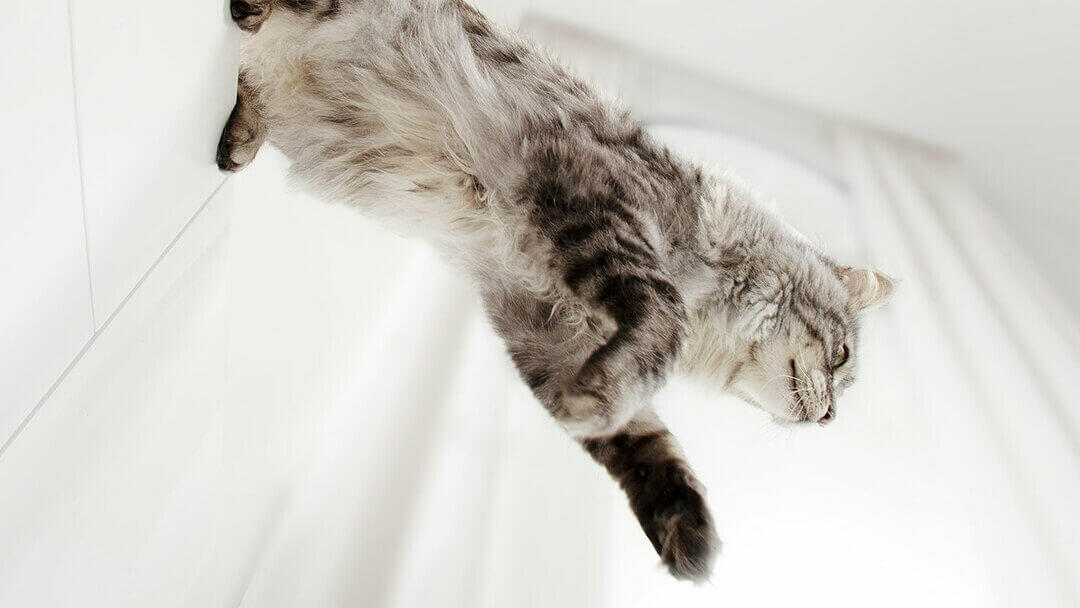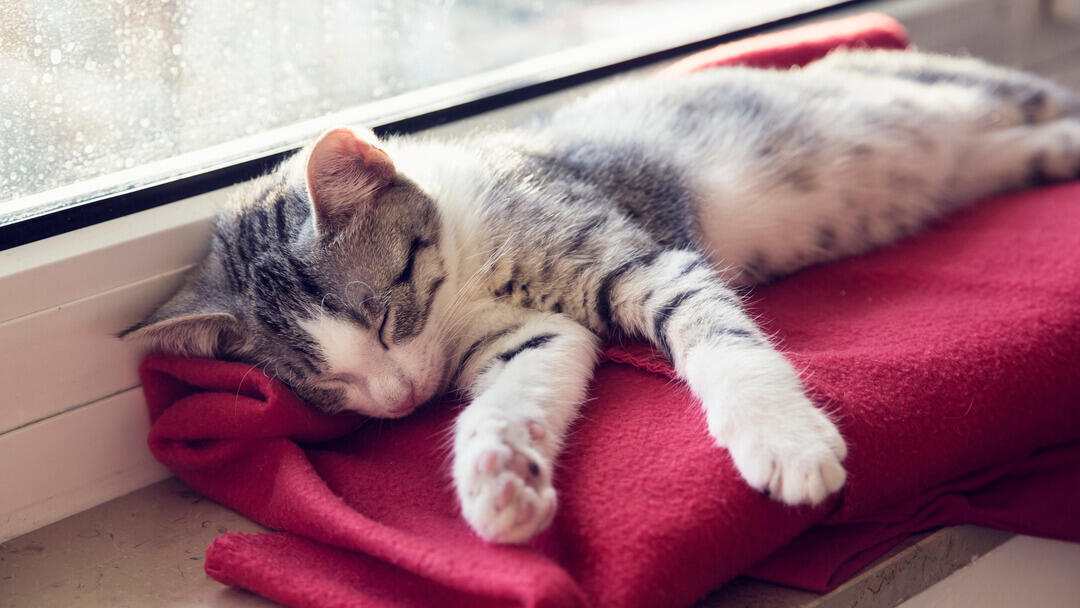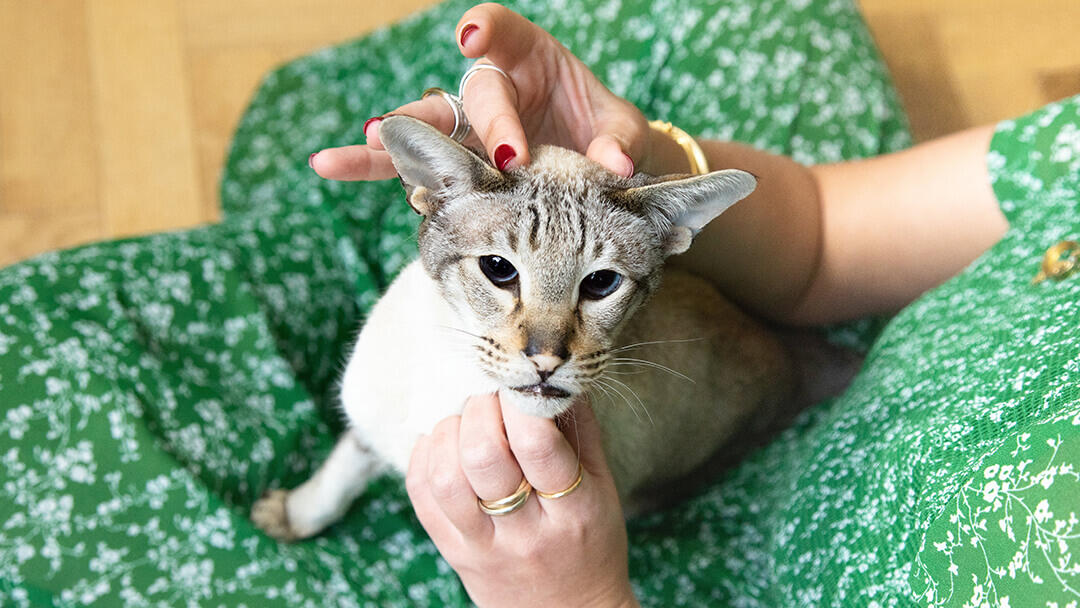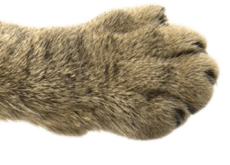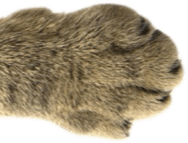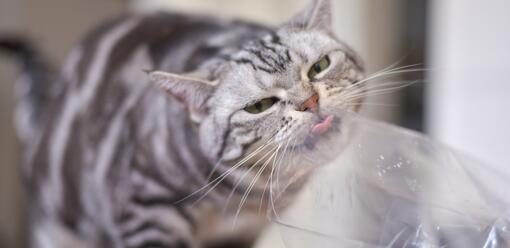
You’ve probably heard the rustling of a plastic bag when you’ve returned from the weekly shop, just to see your cat biting and shredding it with great enthusiasm. But why do cats gnaw or eat plastic? We’ve got it all explained below – including when it’s a cause for concern. Read on to find out all you need to know.
Why does my cat gnaw or eat plastic?
Your cat might eat plastic for a whole host of reasons, including stress, dietary deficiencies, a health issue, or just because they are just being inquisitive and exploring the world around them. Investigating and trying their teeth on carrier bags or plastic containers is natural in a cat who wants to supervise your shopping and be a part of whatever you are doing. Harder plastic can be interesting to bite or gnaw. Eating plastic however is a form of pica, the behavioural urge to eat non-edible materials. This can be dangerous if chunks of plastic are ingested, so this behaviour should be prevented.
We have more details on the causes of cats eating plastic below. Take a look!
Breed
Some breeds are more prone to pica. The Siamese and Burmese cat breeds, whether purebred or crossbreed, may be more likely to develop pica. Part of this is that they are very nosy and inquisitive breeds and so they do like to be in everything and investigate things but if this leads to eating inappropriate items like plastic you need to put preventative measures in place and look at ways to given them other outlets for this behaviour.
Cat health
Your cat eating plastic might be a sign of a wider health issue. Although unusual, diseases like hyperthyroidism in cats, feline diabetes, anaemia or dental issues might cause a cat to chew on plastic.
You should seek veterinary advice if you have any concerns about your cat’s health.
Stress and anxiety
Stress or anxiety can cause cats to show changes in their behaviour and chewing plastic can be one of many signs that your cat is feeling anxious. It’s important to keep an eye on your feline if you see this to make sure they don’t bite off chunks of plastic as this can be dangerous for them.
It is important to address the cause of this behaviour and not just the symptoms, however. Think about what could be causing your cat stress. Is it a new environment? Have there been any changes (a new family member – human or animal, workmen, decorating, changes to owner work patterns, unusual noise or activity)? Lack of ability to indulge in natural hardwired behaviours?
This is an area where an accredited cat behaviour specialist will be able to help you find the cause of your cats’ stress and hopefully address the need to eat plastic.
Lack of things to gnaw, chew and crunch
It is natural for cats to eat things that they can gnaw and chew. If they do not have this in their diet or provided in appropriate enrichment opportunities, they might be feeling the need to exercise their teeth and jaws on inappropriate items.
Pain
Many unusual behaviours are driven by pain – and chewing, gnawing, and eating often inappropriate things can be one of them. As with any new behaviour, the first port of call should be your vet to rule out any clinical causes. Be aware however that cats are the experts in hiding the symptoms of pain.
OCD
Cats can show compulsive cat behaviour patterns, similar to OCD (obsessive-compulsive disorder) in humans. These OCD-type behaviours could include chewing on all manner of items, including plastic.
Lack of nutrients
Your cat might be telling you that they’re lacking some nutrients by biting plastic. If they feel like they’re missing out on something, they could resort to biting and chewing on other things. It’s important to review your cat’s diet alongside your vet and provide them with nutritious cat foods.
Signs that your cat has ingested plastic
Understanding why your cat is eating plastic is one thing, but knowing when your cat has ingested something it should not have is another. Here are the signs to watch out for.
- Lethargy
- Diarrhoea
- Loss of appetite
- Drool and vomiting
- Behaviour changes – for example, reacting differently when you pick them up or defensive when you touch their tummy
- Abdominal pain
- Losing weight
If you notice any of these symptoms, make sure to contact your vet without delay.
How do I stop my cat from eating plastic?
There are some things you can do to stop your cat from eating plastic. Remember to first take them to the vet to make sure that there is no clinical cause for the behaviour. Once the vet has given the all-clear, you can start to address the behaviour issues that are causing them to gnaw and eat plastic.
The most important thing you can do is look at your cat’s environment and their day-to-day enrichment.
First of all, do they have free access to food, water and litter trays (or outside)? This means where they don’t have to run the gauntlet of dogs, other cats, noisy environment etc… If there are other cats in the house, are there enough resources that they are not competing? Can they have peace and quiet if they want it? Do they have all the social contact they need?
Once you are happy all these needs are being met, start to look at their enrichment. Do they get a chance to jump, climb, tunnel, chase, pounce? If not, start to look at cat toys, or ways of changing their environment to make it more engaging for a cat.
Are they getting a chance to indulge in their natural hardwired behaviours? Many behaviour problems in cats come for living a life of luxury but not being able to do the things cats need to be happy and content.
Prevent access to plastic
Once you have provided them with appropriate things they can gnaw and eat, remove items that they shouldn’t be eating. Put bags away when you come in or put things in cupboards. Try and put cables out of their reach. When you go out, shut the doors of rooms where you know you can’t put things away.
Redirect their attention
If you see them chewing on plastic, redirect their attention to their favourite cat toy to chase, pounce on and gnaw on.
Stimulate them with games
Using fun cat games that really get them thinking, will help get their attention away from the plastic. This could be a hunting game or a chasing game, which we know they love!
Don't just save these games for times when they might be thinking about gnawing some plastic. Make this part of your daily routine with your cat and they will be far less likely to indulge in inappropriate behaviours.
Teach them some new tricks
Keep them stimulated by teaching them a new trick! It could be as simple as teaching them to come when you call them, or more advanced like ‘roll over’. It will help to distract them from the plastic and give you both some bonding time.
Stimulate your cat
Similar to our previous points on stopping your cat from eating plastic, giving your cat stimulating games to play can deter them from chewing plastic. These can be cat-safe plastic toys, catnip toys or plushie toys.
Provide scratch posts
Giving your cat spaces to scratch to their heart’s desire can be a distraction from chewing plastic. Scratching is an important territory-marking behaviour that helps cats communicate with each other, and it also helps keep their claws in tip-top condition.
Again, it’s important to visit your vet if you’re concerned about any aspect of your cat’s behaviour.
We hope this article on cats eating plastic was helpful. Next, check out more on demystifying cat behaviour with our article on why your cat brings you dead things.

